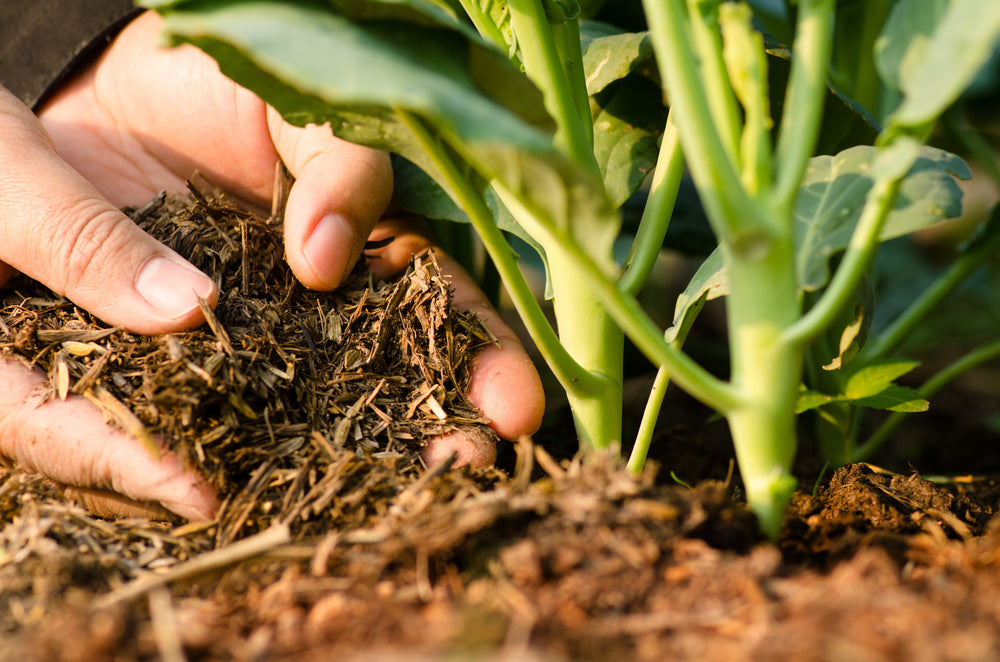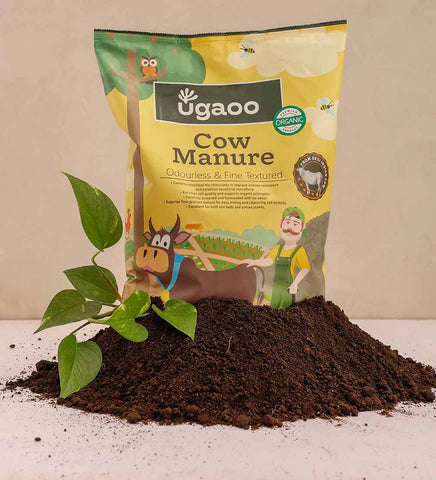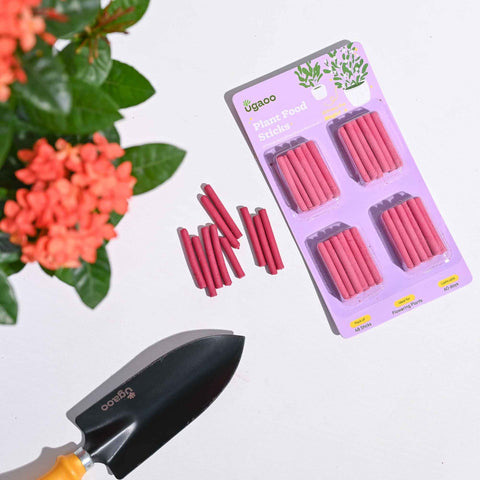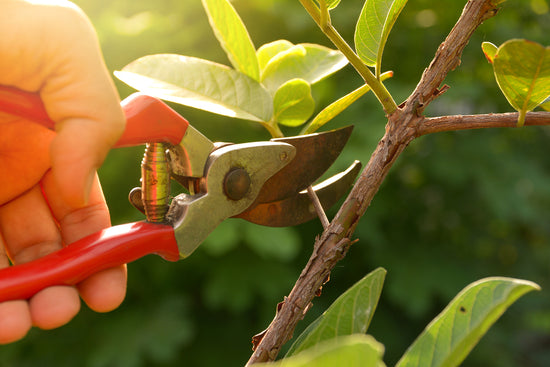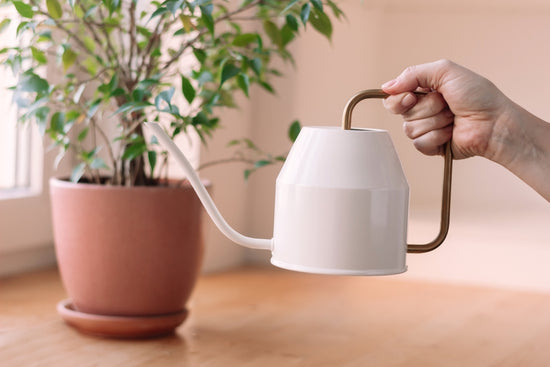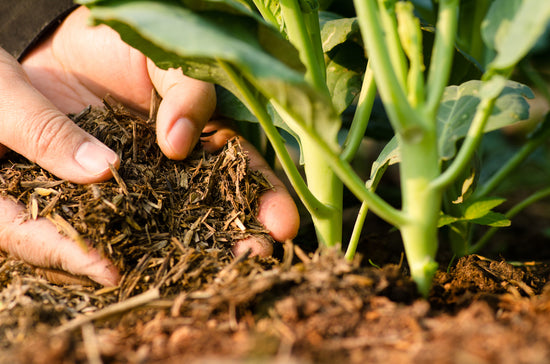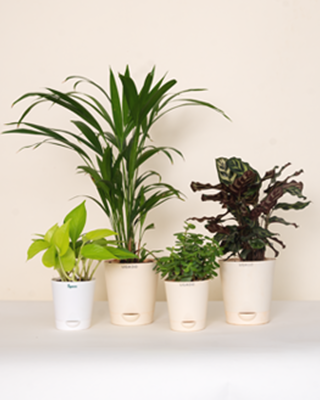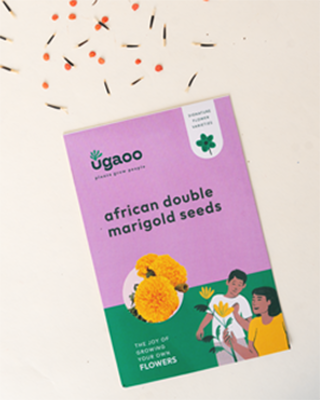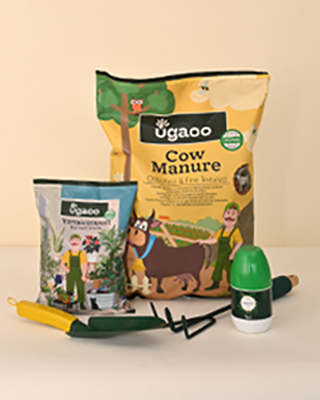Fertilizers tend to play a big role in how any plant or crop turns out. From the point where seeds are sown to when the plant matures and begins to grow; fertilizers are vital players that cannot be ignored or undermined. Unfortunately, there aren’t always accurate descriptions of what specific fertilizers do for your plant; meaning if you’re not well-versed with the way they work, you might end up getting a little too confused!
There are different kinds of fertilizers that you can choose from depending on what stage of life your plant is at and what it needs. There are also stark differences between chemical and natural fertilizers for plants. While you can always make use of chemical fertilizers, we recommend trying to take a more organic route!
Organic fertilizers for plants tend to be much safer; working better in the long run! So, what are these fertilizers and how are they different? Read on to know more!
●Understanding Organic Fertilizers
While it may be relatively new information to you if you are just starting out with gardening, it is extremely important to remember that potted plants require more fertilization than outdoor plants. Plant pots are closed ecosystems where nutrients deplete faster and more often.
On the contrary, plants growing in open ground have decomposing matter around them at almost all times, meaning they require relatively less fertilization.
Fertilisers are essentially plant food - a description that makes it fairly easy to understand what fertilizers do for our plants. The way our food intake keeps us going; boosting our energy levels and allowing us to function or grow better, the same way, fertilizers are energy and growth boosters for plants.
You will find that there is no shortage of fertilizers for plants but it is also these never-ending options that create more confusion, possibly leading to your plants getting fertilizers they don’t really need. There are also various types of fertilizers - mainly chemical and organic - that you will have to choose between, and we suggest that organic fertilizers are undoubtedly the best for your plants!
1. Natural fertilizers are 100% organic
In simple words, these are natural fertilizers that are produced naturally. They could be animal-based or plant-based. These are made from 100% natural materials, making them safe for use on plants in all life stages and ensuring that excessive chemical usage does not ruin their growth.
2. Slow Release Plant Food
Organic fertilizers are slow-release fertilizers, which means that you can incorporate them into your plant soil if they are in solid forms like granular, sticks, or soil-like. The granules or sticks will stay in the soil and dissipate nutrients every time you water your plants. Liquid fertilizers, on the other hand, must be sprayed directly onto the foliage, or applied to the soil/roots as and when required, preferably every fortnight and also in the bussing stage for fruiting plants.
3. Many of Them are Animal-Based
Animal-based manure is obtained from the bones or the excrement of animals. Some of the most commonly known types of fertilizers like this are cow manure fertilizer, goat dung fertilizer, and vermicompost. These are all obtained specifically through the usage of animal excrement.
4. Processed Organic Fertilizers
Processed natural fertilizers include compost, humic acid, seaweed extract fertilizers, and more! Another major source of these fertilizers is decomposing plants and plant matter. These fertilizers are super easy for plants to break down to use.
●Importance of Organic Fertilizers for Plants

1. Organic Fertilizers for Plants Are Eco-Friendly
Organic fertilizers are derived from natural and renewable sources, making them environmentally friendly. They minimize the risk of groundwater contamination, soil degradation, and harm to beneficial organisms compared to synthetic fertilizers.
2. These Plant Growth Fertilizers are Slow Release
Unlike chemical fertilizers that release nutrients rapidly, organic fertilizers break down slowly, providing a steady supply of nutrients over time. This slow-release mechanism helps prevent nutrient leaching and ensures a more sustained feeding for plants.
3. They Fertilize Plants and Improve Soil Structure
Natural fertilizers contribute to the improvement of soil structure and promote more earthworm populations. They also attract beneficial insects that help break down the bigger nutrients into compounds that are easier to digest and absorb. They enhance soil aeration, water retention, and drainage, creating a healthy environment for plant roots to thrive. Nothing improves long-term soil health like organic fertilizers!
4. Great for Long-Term Soil Health
Continuous use of organic fertilizers fosters long-term soil health and fertility. They add organic matter to the soil, which improves its texture, fertility, and ability to hold moisture, making it more resilient to environmental stresses.
●Benefits of Organic Fertilizers for Plants

By now, you must have realized that organic fertilizers are great for plants with their eco-friendly nature and long-term benefits. So, here are a few more benefits of organic fertilizers and their advantages that will completely make you believe in them and their abilities!
1. Nutrient-Rich
Organic fertilizers are derived from natural sources animal and plant waste, animal remains, decaying organic house waste, and more. These natural sources are not only rich in nutrients like nitrogen, phosphorus, and potassium but also in micronutrients such as Boron, Zinc, Iron, Copper, and Magnesium. These are nutrients apart from the major NPK ones that are essential for optimal plant growth.
2. Reduced Chemical Exposure
Using natural fertilizers reduces the exposure of plants, soil, and surrounding ecosystems to harmful chemicals present in synthetic fertilizers. This promotes safer and more sustainable agricultural practices by not only helping your plants but also improving soil structure and its water retention capabilities, and enhancing overall beneficial microbial activity. This allows your soil to sustain for longer durations giving you stronger, healthier plants without needing to use chemical fertilizers too often. On the contrary, chemical fertilizers play a big part in increasing acidity in the soil, damaging it and rendering it unusable in the future.
3. Natural Fertilizers for Plants Enhance the Uptake of Nutrients
Organic fertilizers promote the development of strong and healthy roots, which in turn enhances the plant's ability to absorb nutrients from the soil while also enhancing long-term soil health - a capability that chemical fertilizers lack. This leads to improved overall plant health, vigor, and resistance to pests and diseases. These make for really good fertilizers for plants as they lead to overall growth instead of just in one area of development while providing countless micronutrients - such as Boron, Iron, Zinc, and Magnesium - along with important macronutrients.
4. Balanced Nutrition
Organic fertilizers often contain a balanced ratio of nutrients, mirroring the natural composition of healthy soils. This helps prevent nutrient imbalances and deficiencies, ensuring optimal growth and development of plants.
5. Organic Fertilizers Support Biodiversity
Along with the countless benefits of organic fertilizers for soil health and plants, they also support biodiversity to a great extent. By fostering a healthy soil ecosystem, organic fertilizers support a diverse community of beneficial microorganisms, insects, and other soil organisms. This biodiversity contributes to overall ecosystem resilience and sustainability.
●Organic Fertilizers vs. Inorganic Fertilizers
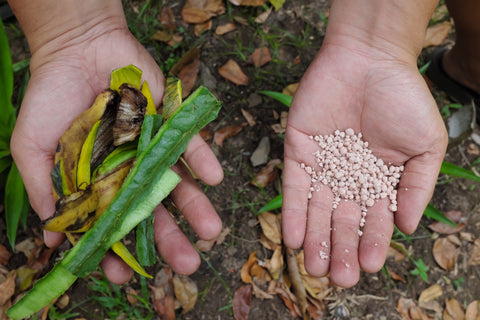
Organic |
In-Organic |
|
Source: |
1 . Organic fertilizers such as vermicompost fertilizers are derived from natural materials such as animal remains and excrement, and plant waste. |
|
Nutrient Content: |
2 . These non-toxic fertilizers for plants contain organic matter, micronutrients, and macronutrients in varying ratios. |
2. On the contrary, chemical fertilizers typically contain higher concentrations of primary macronutrients (nitrogen, phosphorus, potassium). |
Release Rate: |
3. The nutrients from these release slowly over time, providing sustained and balanced feeding for plants. |
3. Nutrients release quickly, leading to rapid plant growth but may result in leaching and nutrient runoff. |
Soil Health: |
4. Natural fertilizers improve soil structure, fertility, and microbial activity. |
4. Chemical fertilizers kill microflora and fauna in the soil thus damaging the soil ecosystem. This results in excessive chemical dependency over time. |
Environmental Impact: |
5. Organic fertilizers are environment-friendly, with minimal risk of groundwater contamination and soil degradation. |
5. These contribute to groundwater contamination, soil acidification, and ecosystem disruption. |
Chemical Exposure: |
6. Organic fertilizers mean reduced exposure to synthetic chemicals, safer for humans and wildlife. This means that any fruits and vegetables you grow will be free from chemicals, making them 100% organic and completely safe for consumption. |
6. Chemical fertilizers mean a higher risk of chemical exposure to plants, soil, and surrounding ecosystems. Very often, fast-release synthetic fertilizers also cause fertilizer burn. Excessive salt and minerals result in damage to the soil, resulting in unhealthy & damaged plants. Additionally, chemical fertilizers have extremely high and harmful chemical contents that adversely affect human health. In Bangalore, cases of heavy metal poisoning have been recorded, while on average, a number of other risks like hemoglobin disorders, Alzheimer's disease, and diabetes are also posed. |
Sustainability: |
7. Supports sustainable agriculture practices, and promotes long-term soil health and biodiversity. This reduces the need for continuous usage of unsafe chemical fertilizers thus reducing waste in the long term and protecting your plants from the ill effects of synthetic fertilizers. |
7. Often relies on lab & human-made sources, and will deplete soil fertility over time without proper management. |
Cost-effectiveness: |
8. Initial costs of natural fertilizers for plants may be higher, but organic fertilizers promote long-term soil health and eventually reduce dependency on external inputs. |
8. These are often cheaper upfront due to higher nutrient concentration but may require frequent applications for sustained plant growth. This increases the long-term amount that you will end up spending of synthetic fertilizers due to the need for repeated usage. |
●Tips for Using Organic Fertilizers
1. Know Your Plants
As we mentioned in the beginning, different plants have different nutrient requirements! You must research the specific needs of your plants to determine the appropriate amount and types of fertilizers to use. Various green, foliage plants often require high levels of nitrogen in fertilizers for optimal development. This nutrient is found in abundance in organic fertilizers like bonemeal, meaning these fertilizers will get your plants exactly what they need while also benefitting the soil around them. It becomes a win-win for your plants and long-term soil health!
2. Test Your Soil
Although not necessary, it will be beneficial for your plants if you do go through with it. Before applying natural fertilizers, test your soil to determine its nutrient levels and pH. This will help you understand which nutrients are lacking and ensure that you provide the right amendments for optimal plant growth.
3. Follow Application Guidelines
Add fertilizer to soil only in the quantities that are recommended on the packaging of natural fertilizers. Underapplication of these fertilizers will not provide sufficient nutrients and while adding excessive amounts of these may not necessarily have any ill-effects, the excess may not be used and will end up getting wasted. Either way, making use of just the right amount of fertilizer is essential to give your plants balanced nutrition and prevent wastage.
4. Apply Fertilizers at the Right Time
Timing is crucial when applying natural fertilizers. Apply them during the growing season when plants are actively taking up nutrients. Avoid applying fertilizers during dormant periods or extreme weather conditions. The growing season in India starts during the spring and summer months, lasting until October to November.
5. Incorporate Fertilizers into the Soil
Mix natural fertilizers into the soil around the root zone of plants to ensure an even distribution of nutrients. Avoid placing some forms of fertilizers directly on plant leaves, as this can cause burning or damage. However, the liquid fertilizer can be sprayed directly on the foliage in the morning or evening. Make sure to avoid placing your plants in direct sunlight as this can cause foliage burn.
6. Mulching with Organic Materials
Mulching with such as straw, leaves, or grass clippings can help conserve soil moisture, suppress weeds, and gradually release nutrients into the soil as the mulch decomposes.
Read More: How Can You Create Your Own Mulch?
7. Rotate Fertilizers You’re Using
Rotate the types of natural fertilizers you use to provide a diverse range of nutrients to your plants and prevent nutrient imbalances in the soil. For application to or into the soil directly, you can make use of cow dung organic manure and vermicompost. On the other hand, you can use liquid fertilizers like seaweed extract fertilizer and Ugaoo’s Humic & Fulvic Acid Liquid Fertilizer for application to your plants’ foliage and roots.
●Best Organic Fertilizers for Different Types of Plants
Whether you’re choosing cow manure or vermicompost, seaweed extract or humic acid fertilizer, there is a solution for every problem! You only have to be mindful while choosing and using these organic fertilizers. Here are different types of fertilizers for different kinds of plants.

●Types of Fertilizers
a. Fertilizer for Growth of Plants
1. Cow Dung Manure for Plants
Cow manure is a natural fertilizer for plants rich in nutrients like nitrogen, phosphorus, and potassium, beneficial for plant growth. It is used to improve soil fertility, enhance moisture retention, and promote healthy root development. Apply aged or composted cow manure in spring before planting or as a top dressing during the growing season. Avoid using fresh manure to prevent burning plants due to higher ammonia content.
Cow dung compost is a natural fertilizer and works flawlessly for all kinds of plants!
2. Vermicompost
Vermicompost fertilizer enriches soil with beneficial microbes, nutrients, and organic matter, enhancing plant growth. Its slow release of nutrients supports healthy root development, improves soil structure, and boosts plant vigor naturally.
3. Bone Meal Fertilizer
Bone meal fertilizer is a valuable source of phosphorus, essential for healthy root development, flowering, and fruiting in plants. Its slow-release nature ensures steady nutrient uptake, promoting robust growth and bloom production. Bone meal also aids in soil fertility and pH balance, particularly beneficial for flowering plants, bulbs, and fruit-bearing trees. It's an organic and effective option for long-term plant nourishment and vitality. So, this also works as a great fertilizer for blooming plants!
b. Best Fertilizers for Vegetable Gardens
While vermicompost and bone meal are some of the more well-known organic fertilizers, there are a few others that are proven to be specifically beneficial for vegetable gardens. Here are a few that you can use to boost and enhance your produce plants through all stages of their life cycle:
1. Organic Compost
Organic compost enriches vegetable gardens by improving soil structure, moisture retention, and nutrient availability. It fosters beneficial microbial activity, enhancing soil fertility naturally. Compost also adds essential organic matter, micronutrients, and trace elements, promoting healthy plant growth, higher yields, and nutrient-rich produce, while reducing the need for synthetic fertilizers greatly.
2. Liquid Seaweed Fertilizer
Liquid seaweed fertilizer is beneficial for vegetable gardens due to its rich nutrient content, including micronutrients, growth hormones, and amino acids. It promotes robust root development, enhances plant resilience to stress, improves nutrient uptake, and boosts overall growth and yield of vegetables, resulting in healthier and more productive plants.
Ugaoo’s Plant Tonic solution is a ready to use liquid seaweed fertilizer that boosts growth and can increase the yield for your produce plants easily!
c. Fertilizers for Blooming Plants
1. Epsom Salt
Epsom salt, rich in magnesium, enhances blooming plants by promoting chlorophyll production, nutrient uptake, and enzyme synthesis. It promotes flower development, prevents deficiencies, and acidifies the soil slightly, particularly benefiting acid-loving plants. Its water-solubility allows for easy application, ensuring rapid absorption and great results.
2. Ugaoo’s Bloom Sticks
These Bloom Sticks are specially formulated and created to benefit flowering plants. These sticks are ready to use and super convenient, needing you only to stick them into your plant. You must use sticks depending on the size of your plant pot. If you’re specifically looking for fertilizers for blooming plants, these sticks make for the perfect indoor plant food; giving your plant better and extended blooms!
FAQs
1. What are the top 3 organic fertilizers?
2. Is goat manure better than cow manure fertilizer?
3. How long do organic fertilizers for plants last?
4. Can you put manure on top of the soil?
5. Is Organic fertilizer sufficient for plant growth?
If you are looking to create the perfect organic compost from the comfort of your home, there is so much potential for all the organic food waste that otherwise gets thrown away. With Ugaoo’s Compost Maker Kit, all you have to do is fill your food waste into the bin, add the neem powder that is given with the kit, and watch the magic happen!

